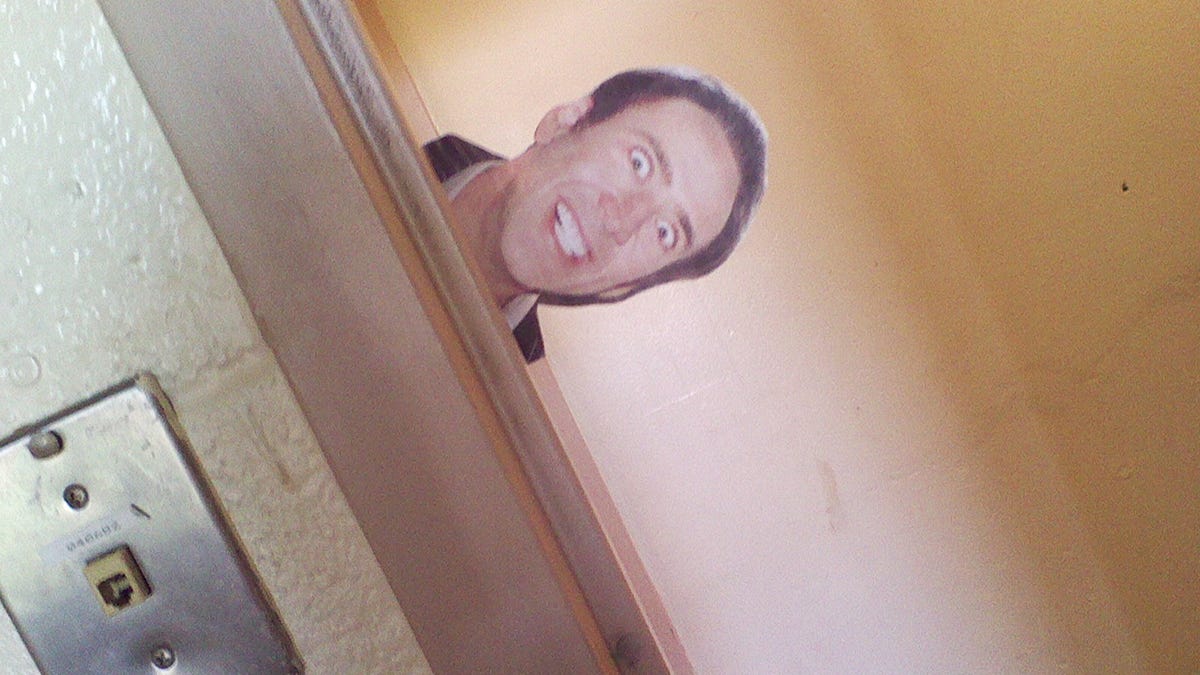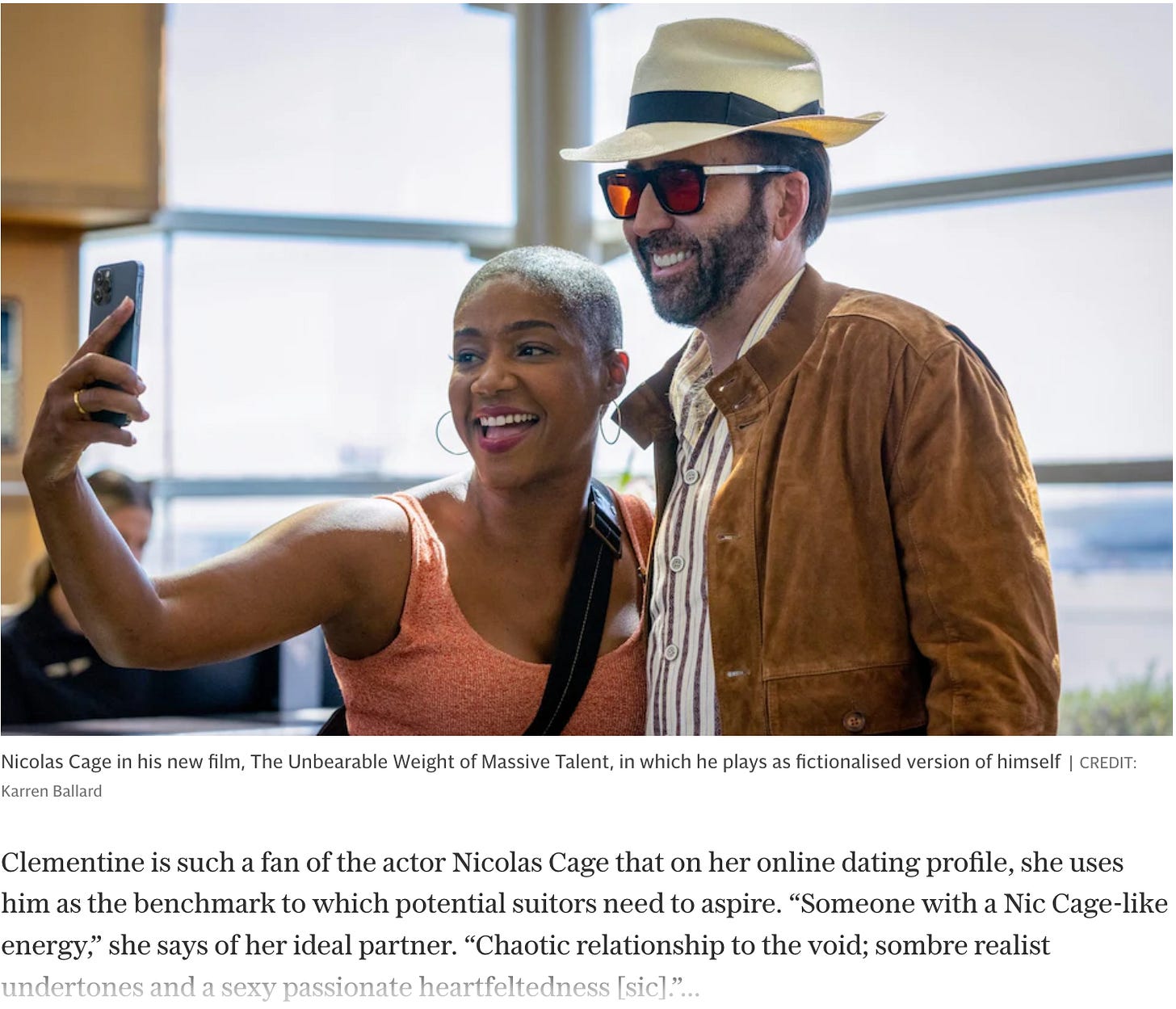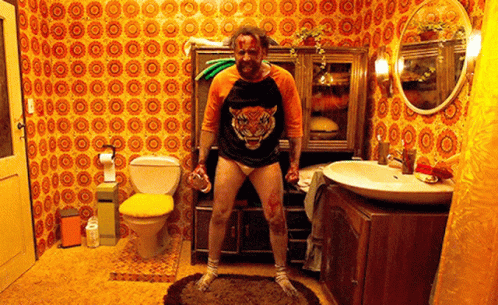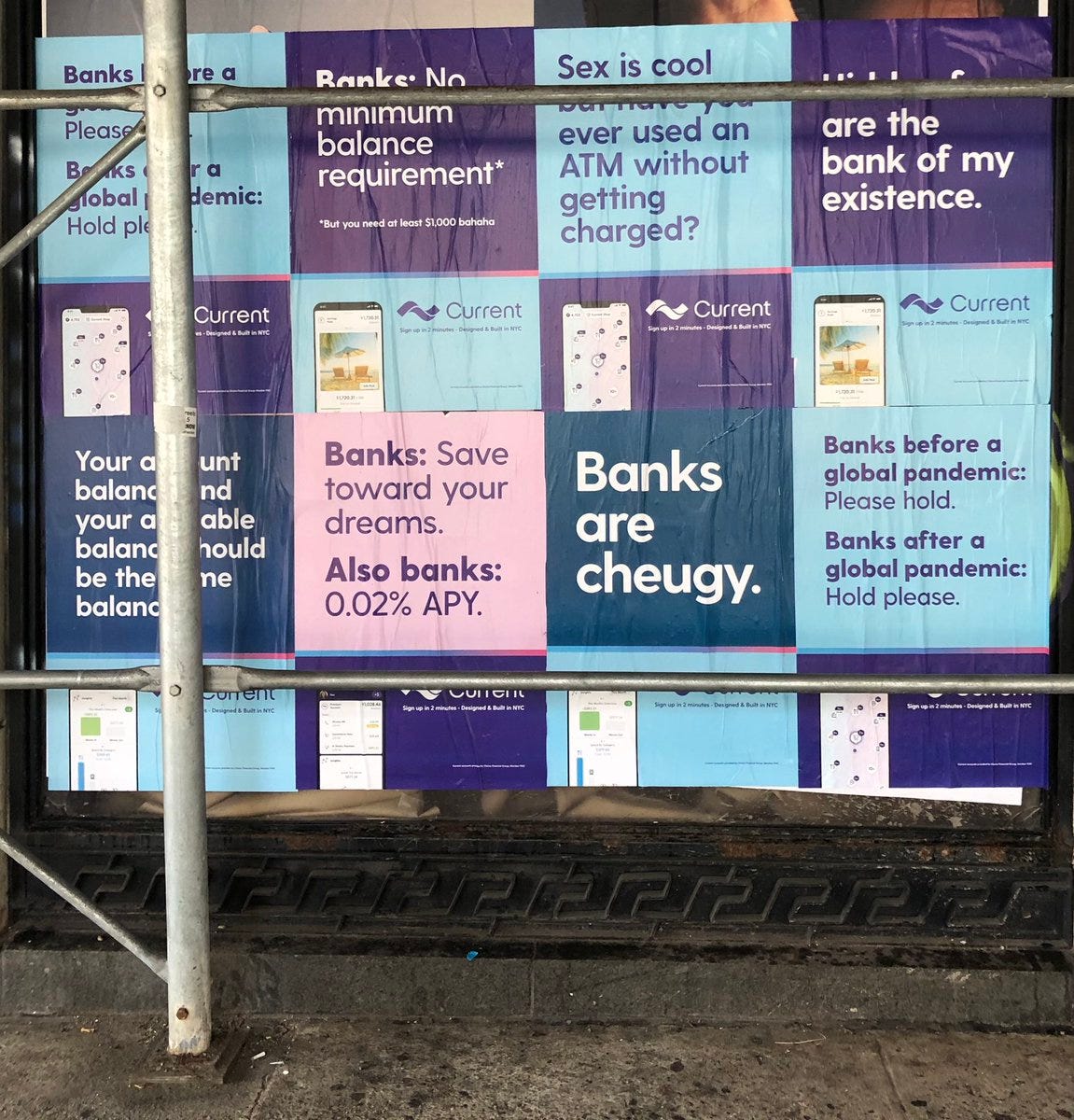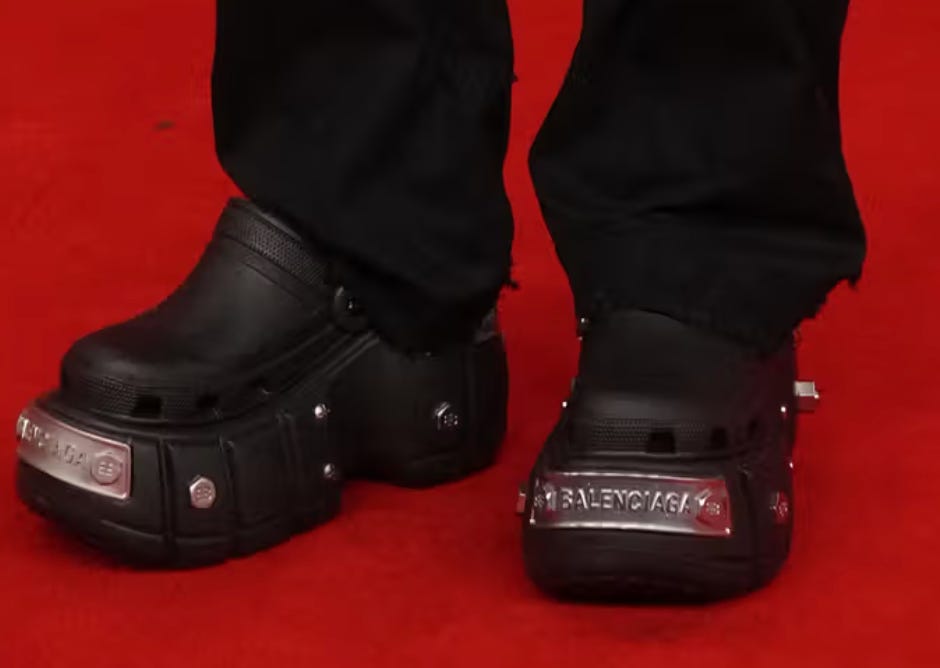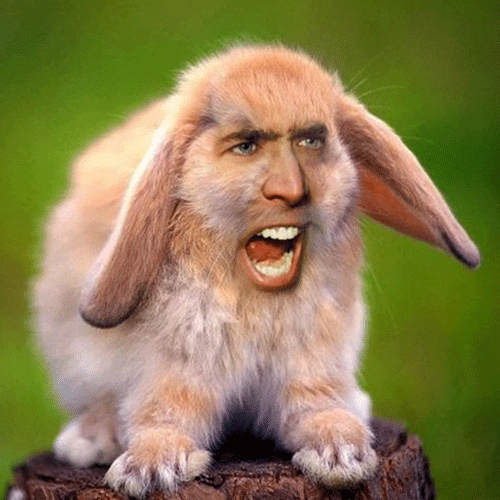Cage and Crocs: Embracing the Weird to Win in Marketing
Nicholas Cage and Crocs have WAY MORE in common than you thought.
Ok, so what does Nicholas Cage have to do with branding and marketing? Literally everything. Thanks for asking.
When it comes to Hollywood celebrities, few have had a career trajectory as wild and unpredictable as Nicholas Cage. The man who once won an Academy Award for Best Actor and headlined box office hits like "National Treasure" and "Con Air" found himself struggling to find work in the mid-2000s, becoming a punchline in the eyes of moviegoers. He went from buying dinosaur bones for his mansion to couch surfing with his bestie Johnny Depp. But instead of fading into obscurity, Cage reinvented himself as an extreme artist, an eccentric personality, and a beloved meme icon, sparking a revival of his career that is nothing short of remarkable.
This man went from Hollywood hot shot to has-been addict to the glorified and lovable eccentric we all know him as today. If you think this perception shift was not carefully orchestrated by the man himself, you’re poorly mistaken. As he told Vanity Fair back in 2021, “I’ve been in on the joke the whole time.”
Let us take a moment to delve into Cage's "flop era." Following a string of lackluster performances in films such as the "Ghost Rider" franchise and various crime dramas, Cage's reputation began to suffer. He appeared to have become a ubiquitous presence in Hollywood, willing to star in any project regardless of its quality or artistic merit. This overexposure ultimately led to his becoming a punchline in the entertainment industry. He was perceived as unpredictable and unhinged, prone to wild outbursts and erratic behavior. The internet, in particular, took note of Cage's increasingly bizarre persona and transformed him into a meme. A new generation, largely unfamiliar with his previous work, saw him as a symbol of absurdity and embraced him as such. The act of "caging" someone by hiding a picture of Cage in unexpected places became a popular internet trend. Cage had become a caricature of himself, a larger-than-life figure whose public image had eclipsed his status as a serious actor.
Despite the skepticism of older audiences, younger generations became drawn to Cage's unique and unconventional style of acting. His willingness to take on offbeat roles and throw himself wholeheartedly into his performances endeared him to fans who appreciated his commitment to his craft. Cage had become something of an artistic anti-hero, embracing the odd and unexpected in his choice of projects. He demonstrated a willingness to take risks, even when they might not lead to immediate success or critical acclaim
.It was this approach that ultimately led to Cage's role in the 2018 film "Mandy," which served as a major turning point for his career. The film, which was directed by Panos Cosmatos, was a psychedelic, horror-infused revenge thriller that allowed Cage to fully embrace his idiosyncratic style. The film received critical acclaim and helped to re-establish Cage's reputation as a cult icon.
The movie showcased Cage's unique abilities as an actor, and its creators seemed keenly aware of his internet persona. One scene features Cage standing pantless in a bathroom, screaming and sobbing in a way that was both hysterical and cathartic. It was as if the film was purposefully highlighting the internet's perception of the actor, and in doing so, it helped to fully solidify his brand.
The newfound appreciation for Cage's eccentricities has only continued to grow, as evidenced by the recent production of a film based on Cage's own life titled "The Unbearable Weight of Massive Talent." The film is a meta-exploration of Cage's career and the public's fascination with him. It feels like a deliberate attempt to capitalize on the absurdity that has come to define the actor's brand. In many ways, Cage's recent career trajectory reflects a cultural shift towards embracing the bizarre and unconventional. It seems that audiences are growing tired of traditional fare and instead crave something that feels authentically strange. In a world where internet culture reigns supreme, Cage has emerged as a kind of anti-hero, unafraid to take risks and fully embrace his idiosyncrasies.
BUT WHAT DOES THIS HAVE TO DO WITH BRAND (and why are you so obsessed with Nicholas Cage?)
I’m so happy you asked (again).
[also shut up I actually love him.]
It's no secret that many brands are struggling to appeal to the elusive and enigmatic Gen Z. Some have tried to bend themselves out of shape to cater to this demographic, with disastrous consequences. Take the infamous Kendall Jenner Pepsi ad, for example, which attempted to co-opt social justice movements for a fizzy sugar-water commercial. And while the intentions behind Tiffany & Co.'s "Not Your Mother's Tiffany" campaign may have been well-meaning, it's difficult to ignore the overt pandering to a generation that values authenticity and transparency above all else.
These campaigns are emblematic of a larger trend in which brands attempt to force-fit themselves into a mold that doesn't suit them. Using emojis, UGC, and trendy lingo (remember the face-melting use of "cheugy" by Current's ad campaign?) may seem like an easy way to connect with Gen Z, but it often comes across as disingenuous and insincere. Without a deeper understanding of the attitudes, values, and desires of this demographic, brands risk appearing hollow and shallow. These massive brands are refusing to lean into their existing ethos and instead are attempting to reinvent themselves. In context, this would be like Nicholas Cage in 2014 writing, starring in, and directing his own melodramatic German-expressionist-style film and having it brutally flop. Everyone is taking themselves too seriously or not understanding their place in the landscape of brand perception.
In a world where many brands try to desperately appeal to the ever-elusive Gen Z, one stands out for its unapologetic authenticity: Crocs. From the moment they burst onto the scene, the "ugly" footwear was the target of ridicule and scorn. But as the market for Crocs grew, so did the criticism. Yet, instead of trying to change themselves to fit the mold of what was considered "cool" or "trendy," Crocs leaned into their unapologetic commitment to their own unique identity. They added charms and even a platform heel, embracing the very things that made them so despised in the first place.
*This is the official Crocs Giphy account showing how you can strain pasta with a Croc…just to really emphasize my point.
This dedication to being true to oneself and not giving a fuck about what others think is precisely what has endeared Crocs to Gen Z. Despite being the subject of countless jokes and memes, the brand has managed to cultivate a devoted following among this demographic. In fact, their authenticity has even attracted the attention of high-end fashion houses like Balenciaga, who have partnered with the brand on a series of collaborations.
It may seem paradoxical that a brand associated with such polarizing opinions has managed to capture the hearts and minds of young consumers. But perhaps it is precisely because Crocs has never tried to be anything other than what they are that they have found such success with Gen Z. In a world where so many brands are willing to abandon their core values in a desperate attempt
So am I calling Crocs the Nicholas Cage of the brand world? Actually kind of yes?
In a world where authenticity is king, both Crocs and Nicholas Cage have tapped into the power of embracing their idiosyncrasies to craft a brand identity that resonates with consumers. They have succeeded in engaging with a younger, more digitally-savvy demographic by leveraging the power of Internet culture, without merely capitalizing on trends. Instead, their willingness to take risks and push boundaries has allowed them to stand out in a crowded marketplace. Cage's career trajectory, from Hollywood hotshot to meme icon to eccentric artist, demonstrates that becoming a cult icon and anti-hero lies in embracing the unconventional and daring to be different.
These lessons can be applied to branding and marketing as well. Many brands struggle to connect with Gen Z, attempting to force themselves into a mold that doesn't suit them, leading to disingenuous and insincere campaigns. Instead, brands should lean into their existing ethos and embrace their uniqueness, just like Cage and Crocs did in their respective industries. By fully embracing their quirks and unique characteristics, they created authentic and memorable brand identities. By fully embracing internet culture, memes, and viral content, they have engaged with younger, tech-savvy audiences. Brands can learn from Cage's and Crocs' approach and aim to connect with their audience on a deeper level, rather than superficially pandering to trends and buzzwords. Ultimately, prioritizing authenticity and unconventional approaches over superficial trends and buzzwords can forge deeper connections with audiences.
Are you down for the chaos? Feeling like brand is indeed maybe a joke? Subscribe for more weirdness.







